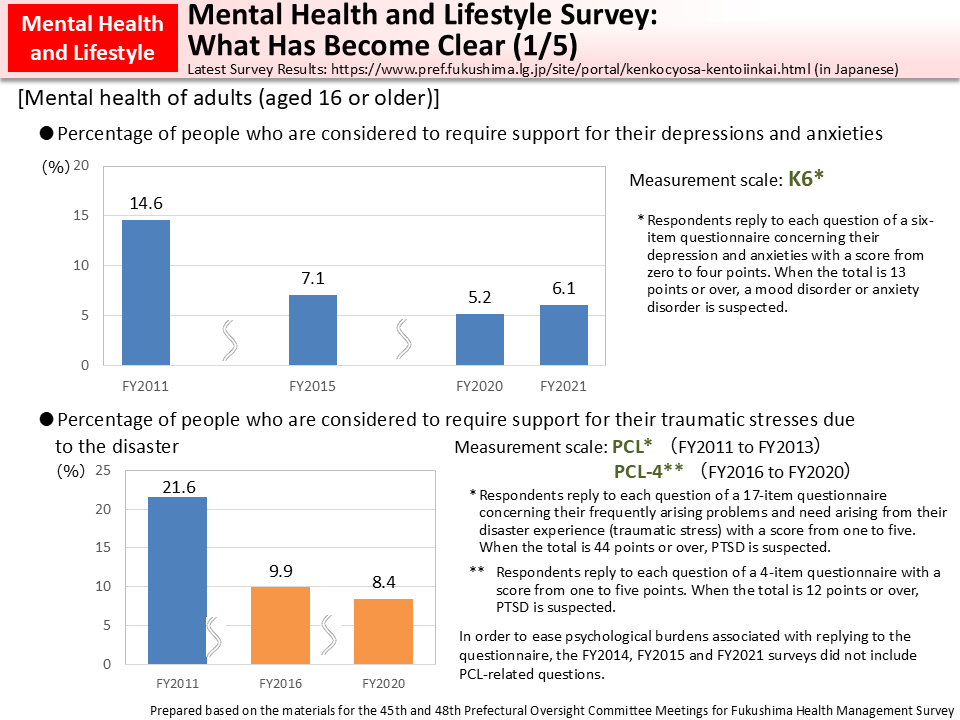Mental Health and Lifestyle Survey: What Has Become Clear (1/5)
K61 is used as a scale to evaluate the levels of mental health of adults (aged 16 or older). Although K6 has been declining (improving), compared with that in FY2011, the results of the FY2021 survey showed a slight increase (worsening). This may be an effect of COVID-19. Compared with the value (3.0%) in a prior study in Japan (Kawakami, 2007), K6 still remains at a high level (bad).
Females tend to show higher values than males.
As a scale to evaluate traumatic stress of adults (aged 16 or older), PCL2 is used. PCL declined (improved) significantly, compared with the results of the FY2011 survey, but it was found that nearly 10% of the participants still have strong traumatic stress.
By gender, females generally show higher values than males, and values tend to become higher for older participants.
- K6: Respondents reply to each question of a six-item questionnaire concerning the frequencies with which they felt depressed or anxious during the past 30 days (such as "Have you felt extremely nervous?" or "Have you felt desperate and helpless?”). This survey targets people aged 16 or older to evaluate risks of any mood or anxiety disorder.
- PCL (Post-Traumatic Stress Disorder Checklist): Respondents reply to each question concerning their mental and physical reactions (traumatic stress) during the past 30 days in relation to their disaster experience. This survey also targets people aged 16 or older to evaluate individuals' levels of traumatic stress. Following the suspension for two years after being conducted in FY2011 to FY2013, the survey was conducted in FY2016 to FY2020 using PCL-4, a shortened version, but has been suspended again since FY2021.
- Included in this reference material on March 31, 2015
- Updated on March 31, 2024

